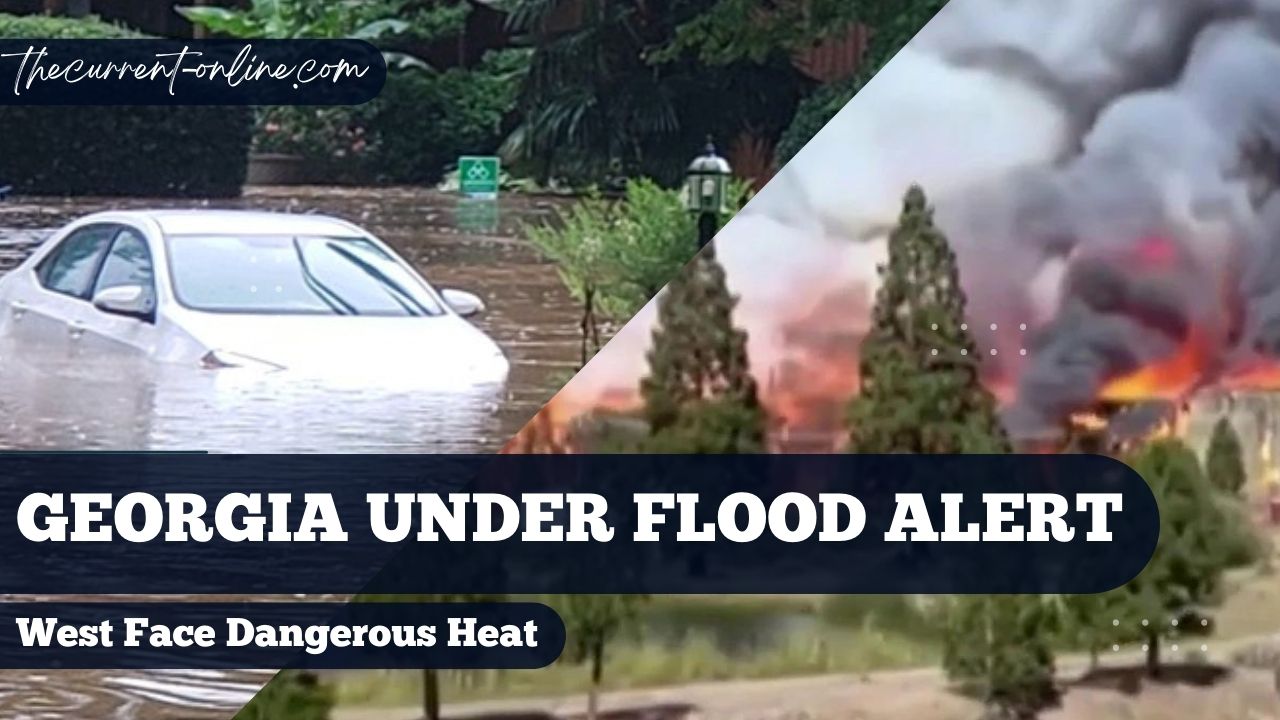On Sunday, flash flooding was caused in certain areas of northwest Georgia by thunderstorms and torrential rain. In local news broadcasts, flooded highways and water-saturated homes were depicted.
The state of emergency was proclaimed in Chattooga and Floyd Counties by Georgia Governor Brian Kemp on Sunday afternoon, directing all state resources to assist with “preparation, response, and recovery actions.” According to the National Weather Service, exceptionally high water levels were being experienced in urban areas, roads, creeks, and streams due to rainfall of up to one inch per hour. According to Kemp’s executive order, the area may have received up to 12 inches of rain.
“This is a very risky and even fatal circumstance. The service advised against traveling unless you were evacuating a flood-prone location or where required to do so by a court order.
For Trion, Summerville, Lyerly, and James H. Floyd State Park in Chattooga County, the service issued a “flash flood emergency.” A flash flood warning was also in effect for Holland in Chattooga County and Floyd County, which is located nearby.
The organization issued a warning to neighbors around 3:10 p.m. when another bout of emergency rainfall arrived in the region.
Due to flash flooding at the Raccoon Creek Filter plant, the city of Summerville warned households who utilize the city’s water utility services to boil water before drinking, cooking, or making baby food.
“Water should be brought to a rolling boil and then boiled for at least one minute. According to the city’s website, residents should continue boiling their water until they receive notification from their drinking water utility that the water system has been fully restored and that the microbiological quality of the water in the distribution system is safe for human consumption.
FAQs
Which Georgian region flooded?
Sunday’s downpour in some regions of Georgia was so significant that, according to CNN Weather, it was a 1 in 1,000-year rainfall event, with up to 13 inches of rain falling in some areas of Chattooga and Floyd counties. According to the weather service, this resulted in “catastrophic flash floods” on Sunday.
Do floods occur in Georgia?
Georgia has seen its fair share of flooding, like many other states. In fact, localities in the state frequently experience some level of flooding anytime it rains. Rain, urban flooding, flash flooding, river overflows, hurricanes, and tropical storms, as well as dam and levee failure, are the main sources of flooding in Georgia.
When is the most likely time of year for floods in Georgia?
The summer months of June through August saw nearly two-thirds of all small-scale flood incidents, with nearly 78 percent of those happening between noon and midnight local time.
How can you tell if a flood is occurring?
Red Flags for a flash flood
Pay attention to reports of levee or dam failures. Keep an eye out for slow-moving storms that frequently pass over the same region. Another significant source of heavy rain is hurricanes. If water is accumulating in pools, the earth is overly saturated with water, and floods may result.
What brings on floods?
The majority of flash flooding is brought on by thunderstorms that move slowly, move over the same area repeatedly, or bring heavy rains from hurricanes and tropical storms. On the other hand, floods can rise quickly or slowly, although they typically take hours or days to form.
